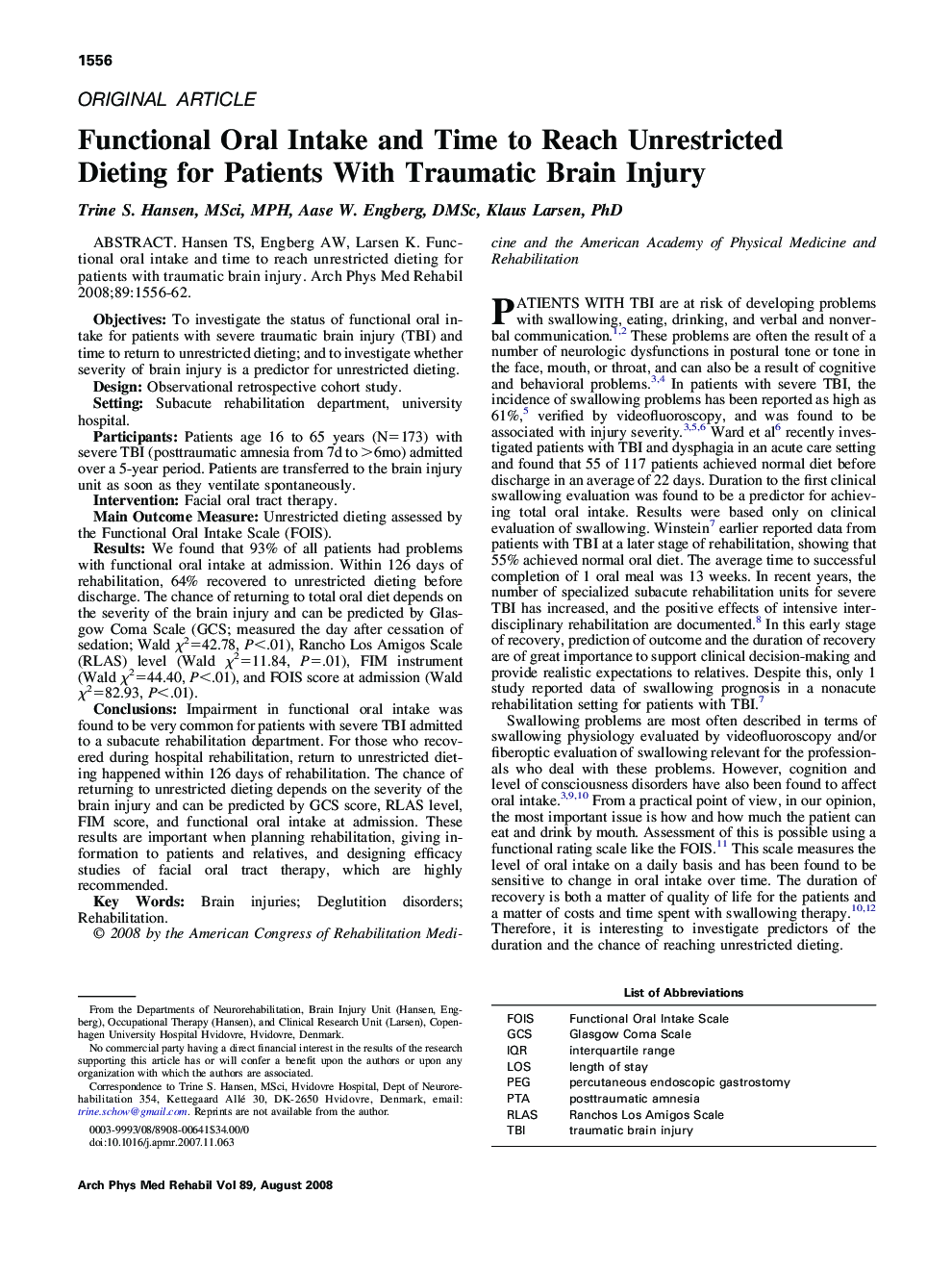| Article ID | Journal | Published Year | Pages | File Type |
|---|---|---|---|---|
| 3451472 | Archives of Physical Medicine and Rehabilitation | 2008 | 7 Pages |
Hansen TS, Engberg AW, Larsen K. Functional oral intake and time to reach unrestricted dieting for patients with traumatic brain injury.ObjectivesTo investigate the status of functional oral intake for patients with severe traumatic brain injury (TBI) and time to return to unrestricted dieting; and to investigate whether severity of brain injury is a predictor for unrestricted dieting.DesignObservational retrospective cohort study.SettingSubacute rehabilitation department, university hospital.ParticipantsPatients age 16 to 65 years (N=173) with severe TBI (posttraumatic amnesia from 7d to >6mo) admitted over a 5-year period. Patients are transferred to the brain injury unit as soon as they ventilate spontaneously.InterventionFacial oral tract therapy.Main Outcome MeasureUnrestricted dieting assessed by the Functional Oral Intake Scale (FOIS).ResultsWe found that 93% of all patients had problems with functional oral intake at admission. Within 126 days of rehabilitation, 64% recovered to unrestricted dieting before discharge. The chance of returning to total oral diet depends on the severity of the brain injury and can be predicted by Glasgow Coma Scale (GCS; measured the day after cessation of sedation; Wald χ2=42.78, P<.01), Rancho Los Amigos Scale (RLAS) level (Wald χ2=11.84, P=.01), FIM instrument (Wald χ2=44.40, P<.01), and FOIS score at admission (Wald χ2=82.93, P<.01).ConclusionsImpairment in functional oral intake was found to be very common for patients with severe TBI admitted to a subacute rehabilitation department. For those who recovered during hospital rehabilitation, return to unrestricted dieting happened within 126 days of rehabilitation. The chance of returning to unrestricted dieting depends on the severity of the brain injury and can be predicted by GCS score, RLAS level, FIM score, and functional oral intake at admission. These results are important when planning rehabilitation, giving information to patients and relatives, and designing efficacy studies of facial oral tract therapy, which are highly recommended.
